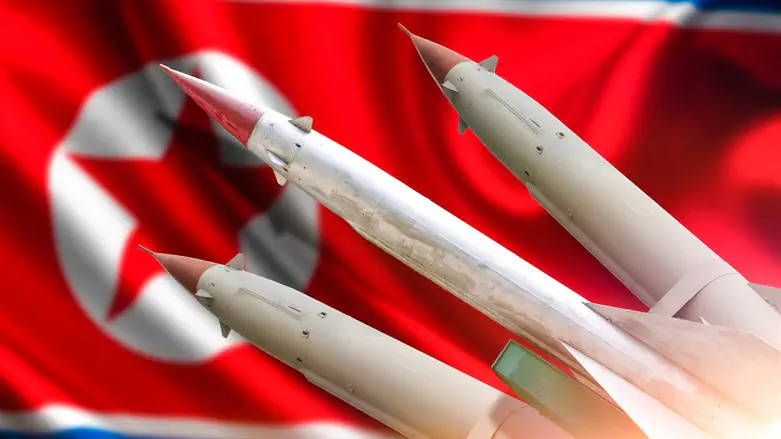
South Korean and US fighter jets carried out precision bombing drills Tuesday, Seoul's military said, in response to North Korea firing an Intermediate Range Ballistic Missile over Japan, AFP reported.
"With the participation of four South Korean Air Force F-15Ks and four US Air Force F-16 fighters, South Korea's F-15K fired two joint direct attack munition (JDAM) bombs against a virtual target at the Jikdo shooting field in the West Sea," Seoul's Joint Chiefs of Staff said, referring to the Yellow Sea.
The drills aimed to demonstrate the allies' "capabilities to conduct a precision strike at the origin of provocations," they added.
The drills came hours after North Korea fired a ballistic missile over Japan for the first time in five years, prompting Tokyo to activate its missile alert system and issue a rare warning for people to take shelter.
The latest launch -- which the United States branded "reckless and dangerous" -- comes in a record year of sanctions-busting weapons tests by North Korea, which recently revised its laws to declare itself an "irreversible" nuclear power.
South Korea said the intermediate-range ballistic missile (IRBM) flew some 4,500 kilometers (2,800 miles) -- possibly a new distance record for North Korean tests, which are usually conducted on a lofted trajectory to avoid flying over neighboring countries.
South Korean President Yoon Suk-yeol called the launch a "provocation" that violated UN regulations, and vowed a "stern response", in a statement issued by his office.
The latest launch was Pyongyang's fifth launch in a week. Just last week, North Korea fired two short-range ballistic missiles ahead of a visit to South Korea by US Vice President Kamala Harris.
North Korea has tested more than 30 ballistic weapons in 2022, including its first intercontinental ballistic missiles since 2017, as it continues to expand its military capabilities amid a prolonged stalemate in nuclear diplomacy.
In May, it fired a volley of missiles, including possibly its largest intercontinental ballistic missile.
In July, Pyongyang fired what appeared to be multiple rocket launchers.
The United States and South Korea have warned of a “swift response” if North Korea conducts a nuclear test, but have also offered talks as a way out.
Last month, North Korea passed a law officially enshrining its nuclear weapons policies. North Korean leader Kim Jong Un said the new legislation makes the country’s nuclear status "irreversible" and bars any negotiation on denuclearization.
(Israel National News' North American desk is keeping you updated until the start of Yom Kippur in New York. The time posted automatically on all Israel National News articles, however, is Israeli time.)